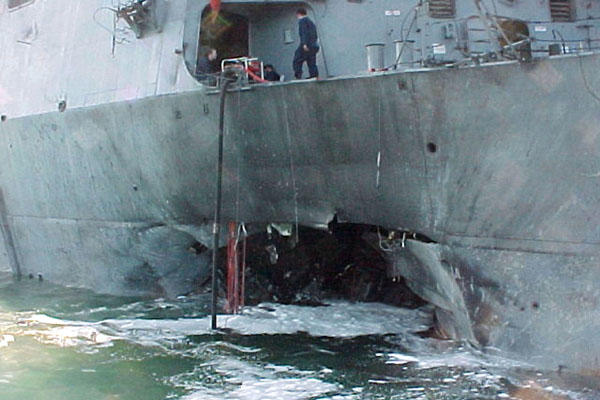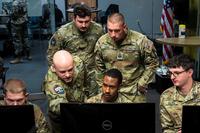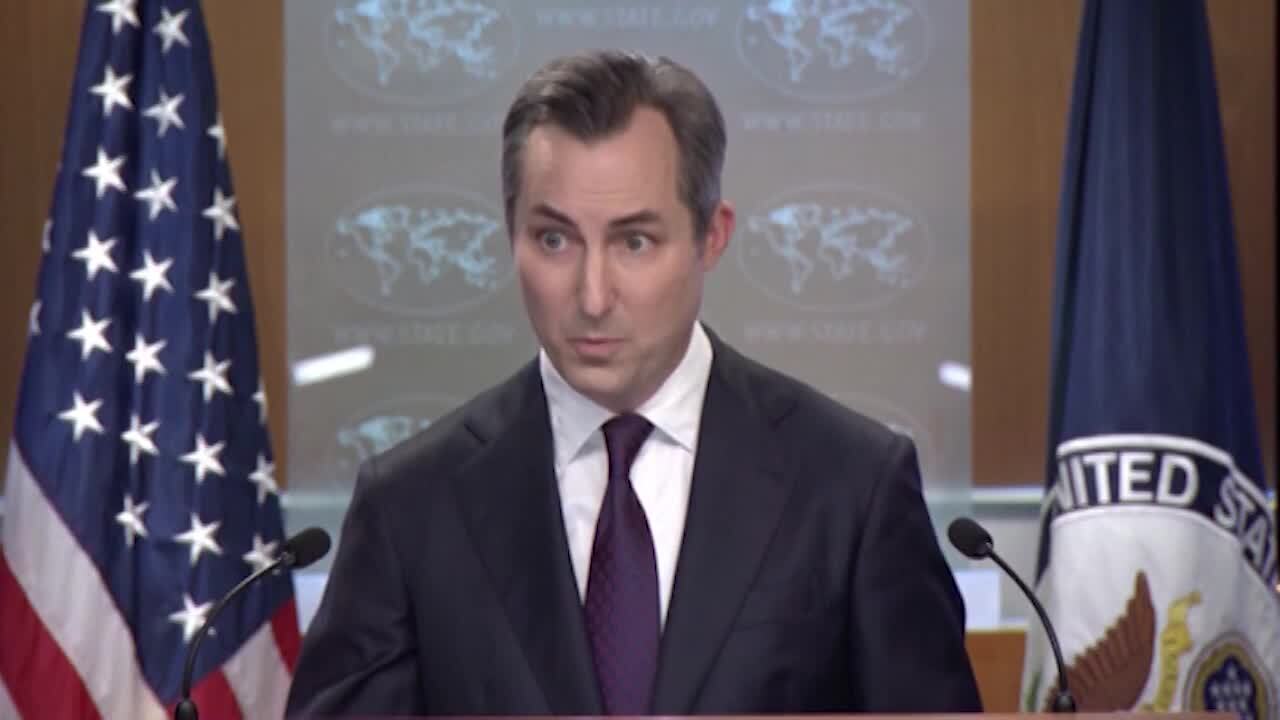SAN DIEGO -- The next attack by Islamic State militants may be directed at a Navy ship, retired Adm. James Stavridis said Wednesday.
Speaking at the AFCEA West conference in San Diego, the former Supreme Allied Commander Europe for NATO and current dean of the Fletcher School of Law and Diplomacy at Tufts University said the organization of violent extremists was likely to target the maritime domain in the near future.
"We have an organization that has demonstrated they are highly innovative and I don't rule out a Cole-like event," he told Military.com, referring to the 2000 terrorist bombing of the guided missile destroyer Cole by a Sudanese as-Qaida affiliate.
Stavridis said he expected the Islamic State in Iraq and Syria, or ISIS, to target U.S. civilian and military assets in the maritime domain in an effort to humiliate and gain profit.
"I'm surprised [Islamic State militants] have not as yet moved into the maritime world and gone after cruise ships, which I think are a logical and lucrative target for them," he said. He recalled the 1989 hijacking of the Naples-based cruise ship Achille Lauro by Palestinian militants and the subsequent murder of Jewish-American passenger Leon Klinghoffer.
On the military front, Stavridis said the Navy needed to address increasing cyber vulnerabilities that might make ships targets for ISIS.
"I think we see an organization that would love to capture an American sailor or two," he said. "I think of our crews as they go ashore as extremely vulnerable in small groups. I think the Islamic State would love the symbolic aspect of going after a ship at sea."
Perhaps counterintuitively, Stavridis said he saw ships as most vulnerable when they were first getting underway and going out to sea, not when they were pier-side or out on the open ocean.
"If I were an Islamic State planner, that's what I would be looking at," he said.
While Stavridis said there were multiple global threats that kept him up at night and that North Korea, with its proved nuclear and ballistic capabilities and erratic young leader, was perhaps at the top of the list, he warned against underestimating the power of the Islamic State.
"They're different because they raise money like a machine and they're experts at branding and marketing," he said, noting that few had heard of the extremist organization even a few years ago. "Now the [IS] flag is the most downloaded image on the World Wide Web."
The financial well for the organization, however, may be drying up amid the ongoing air and ground strikes, according to multiple news reports. A shortage of cash is forcing the militant group to cut back on salaries of fighters in its stronghold of Raqqa, Syria, the Associated Press reported on Wednesday.
--Hope Hodge Seck can be reached at hope.seck@military.com. Follow her on Twitter @HopeSeck.




























